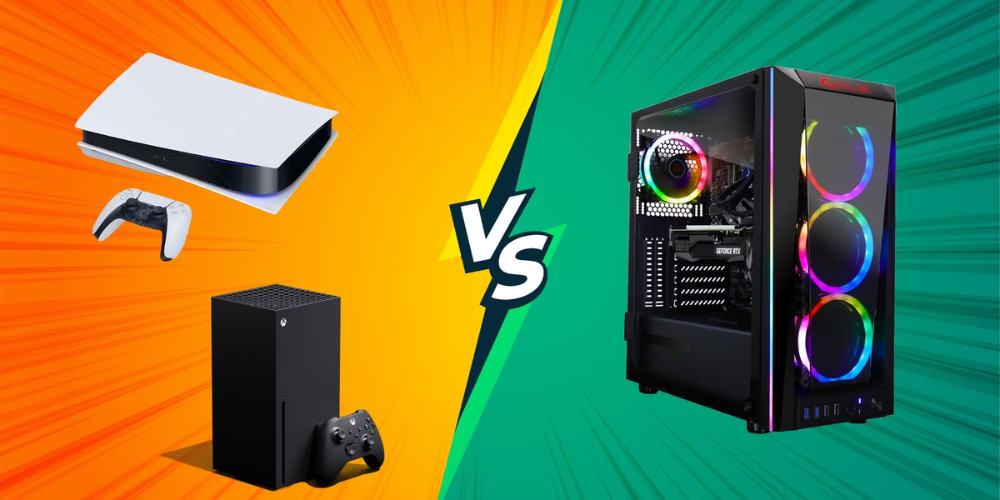Are we confronting an actual dilemma in the video gaming platform industry?
07 Jul 2024

Tracing back to the era that heralded the Sega Dreamcast, the historical archives of Wikipedia tally around 210 million gaming systems, including the Dreamcast, PlayStation 2, GameCube, and original Xbox, flying off shelves. This impressive number saw a substantial bump with the Nintendo DS and PSP, accumulating an extra 235 million in sales.
Fast forward to the successor generation, and the numbers soared to a record-breaking 273 million units, encompassing the Xbox 360, PlayStation 3, and Nintendo Wii, making it possibly the most momentous period in gaming hardware. Beyond the numbers, this phase could be deemed superior for its array of games, consumer-friendly prices, and overall market dynamics—though, such topics merit further exploration.
Transitioning to the most contemporary group of consoles, the going got tougher, with the Wii U, PlayStation 4, and Xbox One reaching a cumulative sales figure of 189 million units. This slowdown coincided with the ascendancy of PC gaming as a dominant preference as this generation matured. Major corporations, with Microsoft leading and followed eventually by Sony, started advocating for this shift by releasing exclusive titles on computer platforms.
Moreover, handheld gaming devices encountered rocky terrain; the PS Vita did not resonate widely with consumers, and the Nintendo 3DS became the company’s least purchased handheld, even trailing behind Game Boy Advance's sales figures, which Nintendo DS had promptly superseded after just three years on the market. Yet, against the odds, the combined total sales for the PS Vita and Nintendo 3DS reached around 90 million units.
The latest generation introduces a twist with the Nintendo Switch straddling the line as a versatile hybrid console, captivating the portable gaming community while also serving as a traditional home console. The inclusion of the Nintendo Switch in the tally pushes the sales upwards of 212 million consoles, a number that is set to swell with continuing sales of the PlayStation 5 and Xbox Series S/X. This generation has moved about 22 million more units compared to its predecessor, taking into account the 90 million units from handheld devices.
Still, there has been increasing chatter from across the globe, suggesting a downturn in console sales. Nintendo's slowing momentum might be attributed to the widespread ownership of the Switch, especially as the platform sees fewer new game releases with an anticipated new device on the horizon. Microsoft faces particular challenges, grappling with a clear direction and communication strategy and raising concerns amongst the gaming community. Similarly, Sony's halt on PlayStation VR2 production and the cut on its sales forecasts—missing even the revised targets—signals distressing times for the gaming industry. These developments are mirrored by explicit sales decreases in locations such as the UK, where PlayStation 5 and Xbox Series have seen sizable dips since April 2023.
Certainly, the PlayStation 5 is hovering close to the sales performance of the PlayStation 4 at comparable timelines, yet this hardly reflects the lofty aspirations Sony likely harbored. It underscores that PlayStation and Xbox, sharing a large portion of gaming libraries, are more interdependent than their respective fanbases might presume. A decline on either platform impacts the profitability of blockbuster game development in this console segment and could spell trouble for the other if the trend persists.
Game development is becoming increasingly resource-intensive and complex, with many studios now limiting their output to a single major title per generation. The possibility of expansive trilogies or rapid succession of sequels for blockbuster series is dwindling. With games taking longer to produce than a console generation lasts, expectations for sequels to iconic series on future console iterations appear bleak.
The straightforward solution of "acquire more studios" is an oversimplification. Modern top-tier games come with colossal budgets—only a handful of publishers can bear such investments, and games face pressure to appeal to a broad audience with minimal controversy, undergo extensive market testing, and explore revenue beyond initial sales. This is an unsustainable trajectory.
The pool of potential console purchasers is diminishing, development budgets are ballooning, and the time to create games is stretching. It’s an equation that seems unsolvable. The value of the PC as a platform is becoming inexorably indispensable, offering a home for platform exclusives, superior versions of cross-platform titles, and access to console exclusives thanks to the strategies of Microsoft and Sony.
Cost is an ever-present factor. Previous console generations experienced gradual price reductions, with the likes of PlayStation 3 and Xbox 360 eventually hitting the $149 mark. Yet, in the last generation, prices stabilized around $249 for both PlayStation 4 and Xbox One. In stark contrast, current generation consoles have seen a rise in price, particularly in Europe, making them significantly more costly after three years compared to past trends.
This juncture would typically be the peak of sales, but instead, they're declining. The premise that cutting console prices in half could have altered the scenario is not far-fetched. However, the raw power of the PlayStation 5 and Xbox Series X does set them apart from predecessors, justifying some of the cost, but it's questionable whether these technological leaps are reaping sufficient benefits for the investments.
Will the gaming industry as we know it find rejuvenation, or are we witnessing the end of an era? The answer is unclear. What's evident is the need for a pivot. Amidst skyrocketing game development costs and the need for higher sales, the solution requires reconsideration of the console model. It's conceivable that Microsoft and Sony might trend towards more PC-like consoles, offering different performance levels and possibly even launching joint gaming services to challenge established platforms. The path is uncertain, but the narrative is clear—the industry is at a crossroads, and significant transformation seems not just possible but inevitable.







